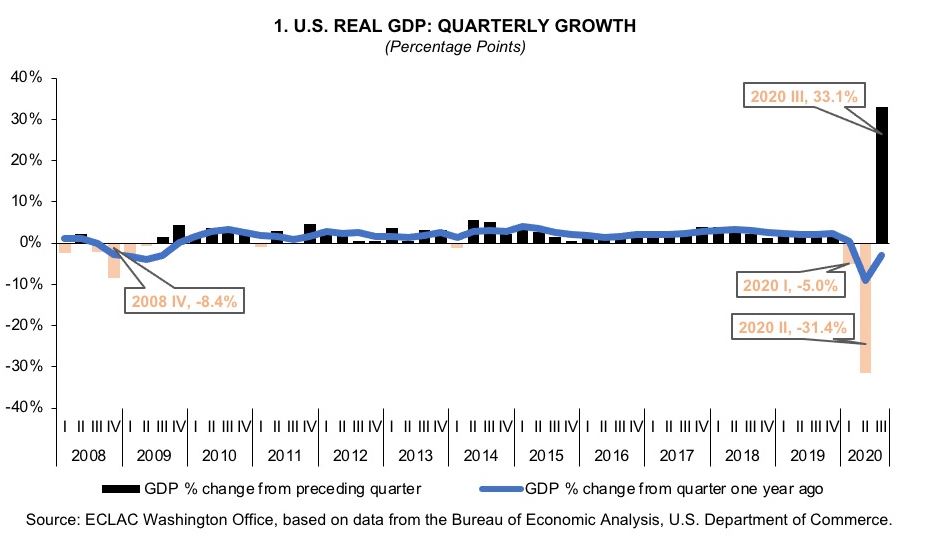U.S. Economic Outlook–Third Quarter 2020
17 Dic 2020
|
Nota informativa
Áreas de trabajo
The U.S. economy expanded at a 33.1% annual rate in the third quarter; market projections suggest a decline of about 4% in 2020.
- The pandemic has created unprecedented volatility in economic growth this year, with the record-shattering decline in real GDP in the second quarter followed by a similarly record-breaking gain in the third. The U.S. economic expansion in the third quarter of 2020 followed a decrease of 31.4% in the second quarter and 5% in the first, with the third-quarter gain reversing about 75% of the prior decline.

- Economic forecasts project a slowdown in the final quarter of the year, however, because of the recent surge in COVID-19 cases and some tighter restrictions that have been implemented to contain the spread of the virus. There is already some evidence that the labor market has begun to weaken. The slowdown in the pace of non-farm payroll gains to 245,000 in November underlines how the renewed surge in virus cases and restrictions is weighing on services demand, as the sharp rise in coronavirus cases since October poses downside risks to the consumer recovery.

- While many of those who lost a job early in the pandemic have been rehired, there are roughly 10 million fewer jobs than there were in February. Many of the unemployed may lose the benefits that have sustained them, as the emergency assistance approved by Congress last spring is set to expire at the end of the year. The size and content of another fiscal package of still much needed relief measures is currently under discussion.

- The economic outlook remains challenging for the winter months, as it depends on containing the spread of the virus and on new policy measures to support the economy. However, encouraging news regarding vaccines, expected to be more widely available in the course of next year, have led to upgrades in economic growth projections for the second half of 2021.

For a complete and detailed analysis see the PDF attachment with the full document.
Contenido relacionado
15 Dic 2020
| Publicación